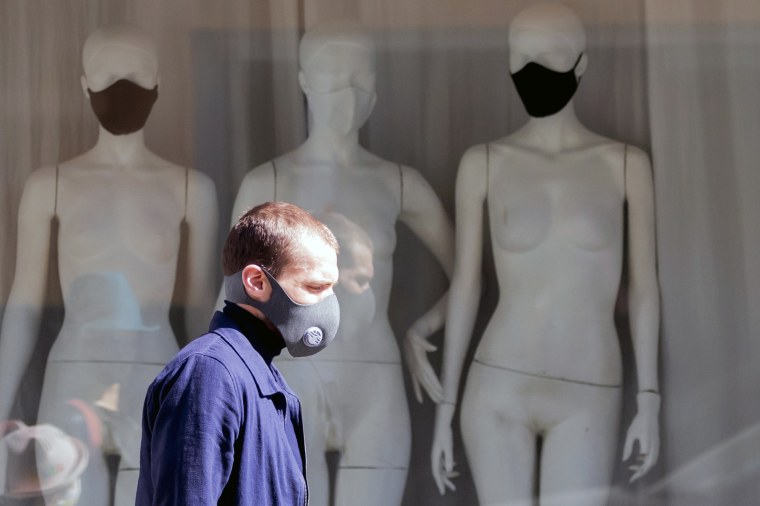Masks with valves do not stop the spread of the coronavirus and should not be used, according to the Centers for Disease Control and Prevention.
"Masks with exhalation valves or vents should NOT be worn to help prevent the person wearing the mask from spreading COVID-19 to others," the CDC's website reads after it added a section on mask guidance on Aug. 7.
Masks help slow the spread of the coronavirus by acting as a simple barrier, blocking respiratory droplets in the air a person exhales and stopping them from spreading. Valves, however, allow for air to be exhaled through a hole in the material, meaning the droplets aren't blocked from spreading to others, the CDC says. Because these valves are one-way, droplets are blocked from being inhaled, but nothing is blocked when it is exhaled.
Full coverage of the coronavirus outbreak
These types of masks are often worn by construction workers, who want to avoid inhaling dust but still exhale more freely.
Instead, the CDC recommends people wear simple masks, which can be made from cloth, to slow the spread of COVID-19.
Follow NBC HEALTH on Twitter & Facebook.


